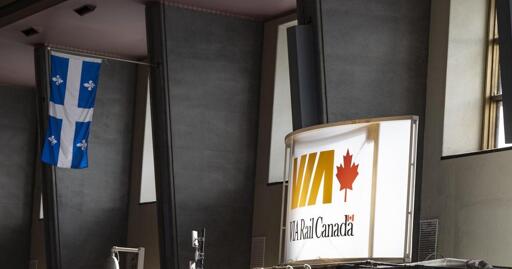Oh, I’m so surprised that any type of rail project in Canada doesn’t go according to the political announcement of the project. /s
I would love not to be cynical about this but whatever they announce is probably going to be delayed, new study needed, delayed, new study, cancelled, announced again… Then a new government and everything stalls, then another government that waits till before an election to announce a new project… rince, repeat.
I just read about the other rail project, the supposedly high speed train between Toronto and Quebec City. Well, obviously this will also be delayed if not cancelled.
https://www.youtube.com/watch?v=kh69IfHPrnU
I don’t know how people get to believe any of this will happen one day.
EDIT: I pasted a link that was also about the high frequency project instead of the high speed one. Or is the news confused about the projects? One or another, it’s unfortunately never going to be realized.
Preventing this oscillation between governments in power is a strong argument in favour of proportional representation. I would far rather have slow shifts in minority governments where we can actually plan and accomplish infrastructure projects instead of this wild “we abandon what the last government didn’t have time to complete” seesaw.
Am I too cynical to think they don’t really want to build transit infra and just make empty promises.
If any party would really want any rail project to be realized, they would announce it right after the election, not a few months before the next one.
So whatever the system we have, I am under the impression that they will find a way to just promise and never do anything about it.
Even if a transit infrastructure project is announced and then funded right after an election, it would take up most of a term for the pre-project work to be completed before shovels even hit the ground. There’s utilities that would need to be mapped and relocated, land to expropriate to start, which I believe has to happen before contracts are signed.
Then there’s always going to be a vocal opposition group throwing obstacles in a major project, whether it’s because there’s no train station serving villages and hamlets, or the sight of a train will ruin people’s views of sprawling parking lots, or groups of people whose land is being expropriated at fair market value not wanting to give up property and going through legal challenges which take time to sort.
Even writing this out, it seems like a transit project does take a great deal of political will to push through, especially before shovels hit the ground.
With our current political representation setup, a big swing in majority governments means that an opposing party in power can just rip up contracts and pay out the penalty fees (or legislate away recourse for a project cancellation) which takes much less effort and provides an immediate win for their side.
Agreed.
However Quebec has seen an exception to that with the REM because it’s taking from the public to finance an investment fund. So the government gave a whole public train line and is choking the rest of the public train network.
In essence, Philippe Couillard and Denis Coderre started the slow privatization of the public transit network in Montreal by giving public assets and carte blanche to an investment entity that’s gonna charge the public transit entity fees for every passenger using its new network. And the public transit entity cannot compete against the investment one, by law.
So obviously, being for profit and for ‘friends’, the project went ahead at record speed.
That sounds like a sweetheart deal that’ll comeback to bite the STM in the coming years. Definitely Quebec is a somewhat refreshing edge case that proves that transit can be built fast, though it feels like it would be difficult to replicate on a level of building/rehabilitating several hundreds of kilometres of rail running between multiple city centres.
I believe that is the reason d’etre of the entire electoral system in Canada. Tell you what you want to hear and then figure out how to not deliver while blaming the other party.
The Transport Department had said the winning contractor, which would design, build and operate the tracks,
Like a public-private-partnership? Wasn’t there a post here noting that P3s were one of the reasons Canadian transit projects take too long, rarely work, and cost more than similar lines built elsewhere?
PPPs went out of style a long time ago, but canada hasnt gotten the memo, or too corrupt to care
We just love to learn by our mistakes by ourselves whole ignoring all previous experiences from all over the world.



